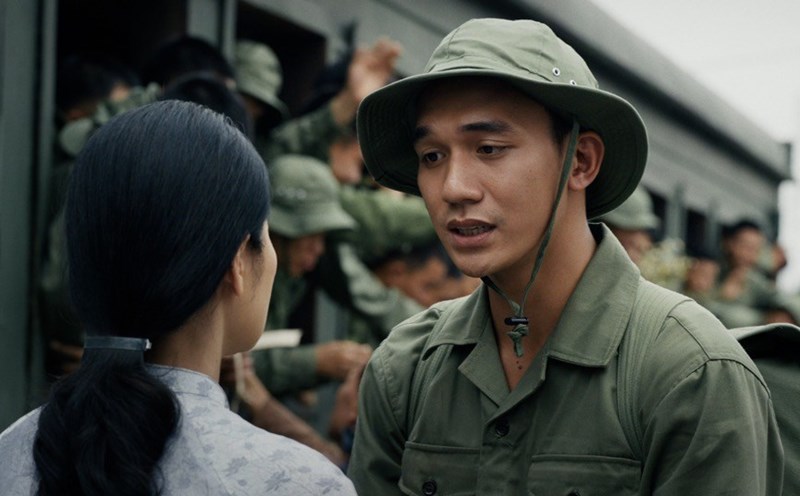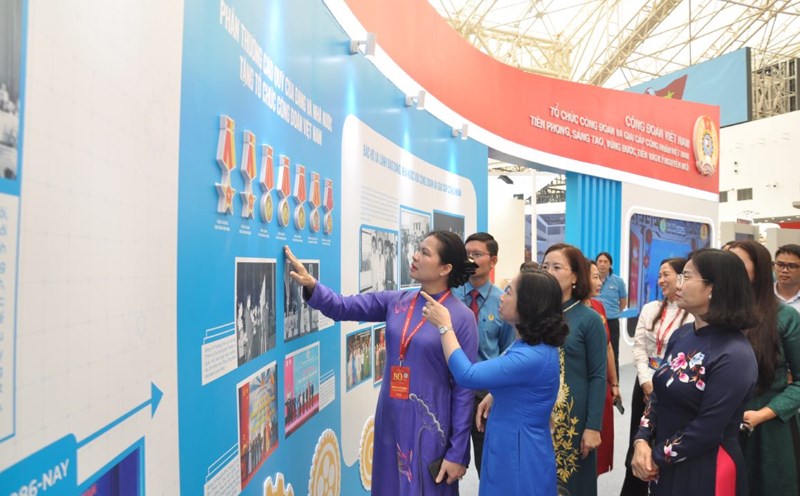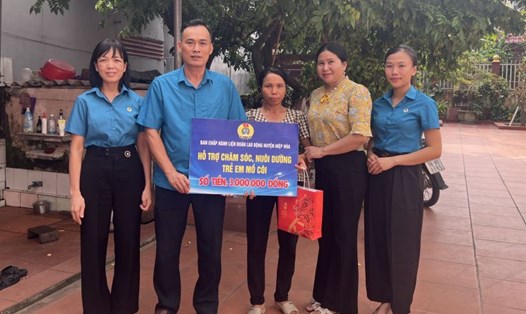Difficulty upon difficulty
“Every day, I have to wake up at 3:30 to prepare my books and clothes to catch the ferry to school. Because if I’m late, I’ll lose a day of school,” Huynh Van Thuat (name has been changed) (A Khanh An Primary School, An Phu District) shared with us about the difficulty of going to school to learn his mother tongue during the flood season.
Thuat is one of about 1,000 Vietnamese students living in Cambodia, attending high school in An Phu district, An Giang province. These days, the fields across the border are flooded, with some places flooded up to chest-high, so the children have to take a ferry to school.
“These past few years, there hasn’t been much fish, so my parents have had a hard time. On days when we have money, we eat in front of the school gate. On days when we don’t have money, we have to prepare food at home or eat less and pay the rest on the next day,” Thuat shared.
Like some other overseas Vietnamese students, Thuat only had a birth certificate but no household registration, so it was very difficult for him to continue studying at the junior high school level. This forced him to give up his dream of becoming a doctor. “After I realized that it would be difficult to study for a long time, I told my father that after finishing 5th grade, I would quit school and find a job to help my family. That was the first time I talked about quitting school and my father didn’t say a word…” - Thuat choked up.
Without land to farm like many others, Nguyen Gia Bach's father (name has been changed) had to leave home to go to Dong Nai to work as a factory worker to earn enough money to support the family and for Bach to pursue his dream of becoming a teacher. "I want to be able to teach students like me in the future because there are many people on the other side who are illiterate because they did not go to school," Bach added.
Efforts for overseas Vietnamese students
Having been with A Khanh An Primary School for more than 10 years, Ms. Nguyen Kim Phi has taught many generations of overseas Vietnamese students. Currently, 33/36 of her homeroom class students are living in Cambodia and sympathize with the feelings of overseas Vietnamese learning their mother tongue.
According to Ms. Phi, the children should have been in grades 5 and 6, but due to limited conditions, especially the impact of the COVID-19 quarantine, they are only in grade 2.
“The students here have spent a lot of time and effort to get to school, so most of them try very hard. But because they have to wake up early in the morning, some children fall asleep on their desks when they get to class. I felt sorry for them so I didn’t scold them, just told them to wash their faces and continue studying. I felt like I had to hide my emotions and turn away,” Ms. Phi said.
The school has 355 Vietnamese students living in Cambodia, accounting for 30% of the total school population. Of these, over 60 students do not have a household registration in Vietnam, resulting in no identification code and no ability to purchase health insurance.
Ms. Do Thi Binh (Principal of A Khanh An Primary School) shared: “After school, I often see students eating outside or bringing their own food. I feel sorry for them, even first graders. That shows that, in difficult economic conditions, our people come there to do business. However, they still want their children to know how to read and write, and the children themselves want to live in Vietnam. From that, I try my best to maintain the number of students,” Ms. Binh said.
"Heart of gold" with compatriots far from home
Mr. Vo Hoang Lam - Head of the Department of Education and Training of An Phu District (An Giang) - said that in addition to taking care of the education of Kinh and Cham ethnic children, the district is also concerned about creating learning conditions for about 1,000 overseas Vietnamese children studying at schools along the border. Especially since 2018, when applying 2 sessions/day, overseas Vietnamese students have encountered many difficulties because their houses are far away, the roads are difficult...
“Faced with this reality, the People's Committee of An Giang province has a policy of building a 2-level boarding school (Primary and Secondary) in Khanh An commune to create a safe and convenient learning environment, ensuring health and knowledge acquisition for students. This will be a premise for students to study in higher grades, creating a future labor force, ensuring skills, avoiding the hardships like their parents,” said Mr. Lam.
It is expected that the school will be put into operation in 2026. However, there will still be legal problems because the education sector currently only has policies and boarding mechanisms for ethnic minorities, not for overseas Vietnamese in difficult circumstances. It is likely that when the school is established, the district education sector will organize a conference to listen to comments and contributions to find solutions.
After more than a quarter of a century of being given the opportunity to learn their mother tongue, now when facing new difficulties, overseas Vietnamese students continue to be boldly supported by An Giang province to stay in class and school for a long and sustainable period. We hope that this breakthrough will receive the joint support of all sectors, levels and society so that overseas Vietnamese will not be far from letters and their national roots.











